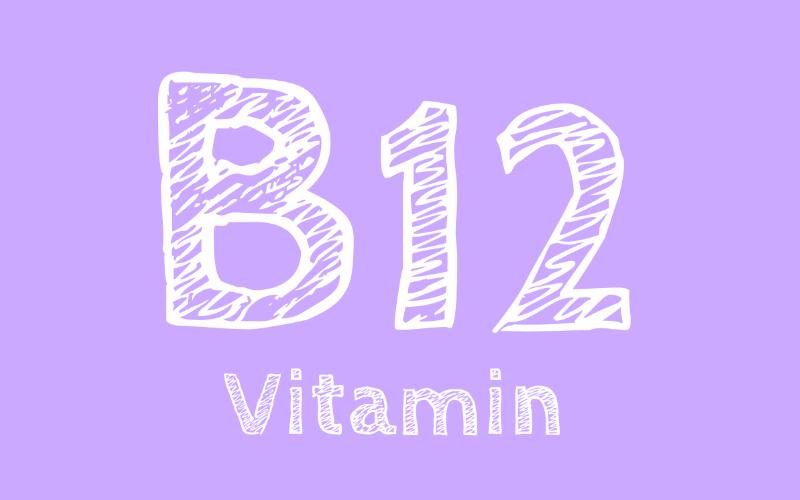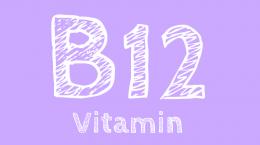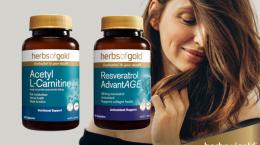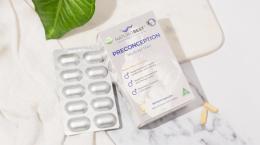What is The Best Form of B12 for Absorption: Methylcobalamin or Cyanocobalamin? A Detailed Guide to Vitamin B12

Vitamin B12 - AKA cobalamin -is a water-soluble coenzyme that triggers essential reactions in your body.
Methylcobalamin is a naturally occurring form of B12, whereas Cyanocobalamin is synthetic. B12 is vital for red blood cell production, DNA synthesis, nervous system function and cell metabolism. So, which form of vitamin B12 is best?
Here we compare Methylcobalamin and Cyanocobalamin and explain how to take B12 supplements. We’ll discuss the benefits of B12, symptoms of B12 deficiency and risk factors.
Disclaimer:Always speak with your doctor before taking any action regarding your health. Supplements have a wide range of potential effects and it's important to ensure that they are right for you. This article is not intended to diagnose, treat, or cure any disease. This post is based on general knowledge and does not provide specific medical advice. This article is for informational purposes only and should not be used as medical advice. You should discuss infertility concerns with your healthcare practitioner, and seek advice before commencing any supplement regime. |
Methylcobalamin B12 Vs. Cyanocobalamin B12
Methylcobalamin is the active form of B12. Cyanocobalamin is the most commonly used form in supplements, though it must be converted into the active form of B12 by your body in order to be absorbed.
Is Methylcobalamin B12 better than Cyanocobalamin B12?
The primary advantage of methylcobalamin B12 over Cyanocobalamin B12 is that the former bypasses the conversion requirements into the active form.
Both forms are considered equally as effective within your body, with neither being better than the other.
Early research suggests that Methylcobalamin may be better absorbed by those with kidney impairment and smokers [4].
On the contrary, Cyanocobalamin is more stable than the natural form, due to the destructive effect sunlight has on Methylcobalamin. For this reason, is it sometimes recommended to take a higher dose of Methylcobalamin compared to Cyanocobalamin [4].
The biggest difference you’re likely to notice between the two: Price.
Cyanocobalamin is less expensive to manufacture, hence why it is the most frequently used in supplements.
6 Top Benefits of B12
Poor nutrition, restrictive diets, GI disorders and advanced age all contribute to lower levels of this vital nutrient in your system. In such cases, B12 supplements may be helpful. The benefits of B12 include:
- Helps to Prevent Megaloblastic Anaemia: B12 is essential for red blood cell formation. Low levels of B12 can prevent blood cells from transporting oxygen to vital organs, causing fatigue and weakness [2].
- Supports Energy Production: B12 assists in the metabolism of proteins, carbohydrates and fats which supports sustained energy release [5]
- May Promote Cognitive Function: By keeping levels of homocysteine low and preventing oxidative stress [3]
- May Alleviate Depressive Symptoms: B12 is necessary for the production of serotonin and dopamine, which play important roles in mood regulation [5]
- Support Cardiovascular Health: higher levels of B12 are linked to reduced blood levels of homocysteine; a compound linked to elevated risk of heart attacks [1].
- May Support a Healthy Pregnancy: Vitamin b12 deficiency in pregnant women may increase the risk of neural tube defects and B12 deficiency in their infant, which could cause neurological damage [2].
Are there other forms of B12?
You might see some other names for B12 across different supplements; Adenosylcobalamin and Hydroxocobalamin. Evidence suggests that all types of B12 supplementation are as effective as each other within your body, regardless of the binding molecule [3].
What Causes B12 Deficiency?
A host of factors contribute to low levels of B12 in your body, including:
- Age: your ability to absorb B12 naturally declines with age
- Inadequate nutrition: diets free of meat and dairy products or adequate levels of fortified foods
- Alcohol use: heavy alcohol intake can contribute to impaired B12 absorption
- Autoimmune disorders: Conditions that cause damage to the stomach lining can affect B12 absorption
- Medications: including diabetes medication Metformin and proton pump inhibitors
What are the signs of Vitamin B12 Deficiency?
Your ability to absorb B12 declines naturally as you age, hence why up to 43% of older adults experience some level of B12 deficiency [1].
Symptoms range in severity but may include:
- Headaches/ lightheadedness
- Mental impairment/ brain fog
- Pale or yellow skin
- Fatigue
- Gastrointestinal disturbances
- Depressive symptoms
- Inflammation of the tongue
Severe B12 deficiency can result in neurological damage [2]. If you suspect a B12 deficiency, speak to your GP who may recommend a blood test to check your levels prior to commencing supplementation.
How to treat B12 deficiency
- Treat the Underlying Cause
B12 deficiency could be caused by an underlying autoimmune or gastrointestinal disorder. You should Consult your healthcare provider first to rule out these possible causes. - Change your diet
Increase your intake of meat, fish, eggs, dairy products and fortified products including plant-based milks, cereals and nutritional yeast (vegan cheese alternative). - Consider a B12 Supplement
To treat an existing B12 deficiency, B12 supplementation may be recommended for 1-4 months depending on your initial B12 levels, then a lower maintenance dose may be recommended [3]. - B12 Injections
In severe cases, your GP may recommend intramuscular B12 injections. The amount and frequency will be determined by your level of deficiency, though could be once a day for several weeks then every few months for maintenance purposes.
Who is at Risk of B12 Deficiency?
Certain groups of people have a higher likelihood of developing B12 deficiency including:
- Older adults
- People with gastrointestinal disorders such as Coeliac Disease
- Vegetarians/ vegans
- Infants of B12 deficient mothers
What is the recommended dosage of B12?
Generally, the recommended dosage for an adult is 2.4 micrograms daily [3]. Your body will absorb what it needs and the rest is passed through your urine.
How to take B12 Supplements
B12 supplements are often ‘sublingual’ - that is, administered orally and absorbed through mucous membranes. This is because your saliva acts as a binding agent to the B12 and helps transport the vitamin through the digestive tract safely.
Can I take a multivitamin with B12?
Yes, sure you can. Though evidence suggests that this is not the most effective way to raise your B12 levels. In fact, some research suggests that other ingredients and vitamins in your average multivitamin could impair the absorption of the B12 component altogether [4].
Side Effects / Precautions / Interactions
Potential side effects of B12 supplements may include:
- Headaches
- Nausea
- Diarrhoea
- Fatigue
- Tingling sensation in the hands or feet
B12 supplements can potentially interfere with medications to treat acid reflux and medications for prediabetes/diabetes including Metformin.
Is vitamin B12 safe to take while pregnant?
B12 supplements are generally considered safe to use during pregnancy at the recommended dosage. If you follow a strict vegan diet, your doctor may recommend B12 supplements during pregnancy and breastfeeding. Consult your GP for further guidance.
Best Vitamin B12 Supplements
You should consult your general practitioner to determine any underlying causes of your symptoms prior to beginning a B12 supplement regime
- Herbs of Gold Vitamin B12 Activated Sublingual B12 - 1000 micrograms of active B12 - co methylcobalamin - to support cognitive function, energy production, nervous system health, cardiovascular health and immune function. A pleasant tasting tablet that dissolves under the tongue. Click on the product to read more.
- BioCeuticals Methyl B12 Chewable Activated B12 - Contains active co methylcobalamin, active B12, to assist in managing a vitamin B12 deficiency. A flavour-free, chewable tablet for sublingual absorption. Click on the product to read more.
- Bioceuticals B12 Liquid Spray - Contains Cyanocobalamin B12 to help support nervous system health, red blood cell production and energy production. Vegan friendly formula in a once-daily oral spray. Click on the product to read more.
- MTHFR Wellbeing Hydroxy B12 Drops - Easy-to-take 5 to 10 drops per day. Contains Hydroxocobalamin B12 to help fill nutritional gaps and assist in managing a B12 deficiency. Click on the product to read more.
The Takeaway
There is a demand to reduce our animal product consumption to promote sustainability and many diets are skewing towards meat-free. As such, there is a need to secure a safe and reliable source of essential B12 vitamins.
Fortified foods or supplementation may be beneficial to prevent or treat a B12 deficiency where nutritional intake is inadequate.
Methylcobalamin and Cyanocobalamin are both considered equally as effective within your body. Though Cyano is a synthetic form of B12, it is easily converted into the active vitamin and is the less expensive option.
References
[1] National Institutes of Health, 2023. Vitamin B12: Fact Sheet for Consumers https://ods.od.nih.gov/factsheets/VitaminB12-Consumer/#:~:text=Vitamin%20B12%20is%20a%20nutrient,makes%20people%20tired%20and%20weak.
[2] Healthline, 2024. Health Benefits of Vitamin B12, Based on Science https://www.healthline.com/nutrition/vitamin-b12-benefits
[3] National Institutes of Health, 2023. Vitamin B12: Fact Sheet for Health Professionals https://ods.od.nih.gov/factsheets/VitaminB12-HealthProfessional/
[4] Nutrition Facts, 2021. The Best Type of Vitamin B12: Cyanocobalamin or Methylcobalamin? https://www.youtube.com/watch?v=31i2TEkhHwE
[5] WebMD, 2023. Vitamin B12: Uses, Side Effects, and More https://www.webmd.com/vitamins/ai/ingredientmono-926/vitamin-b12







